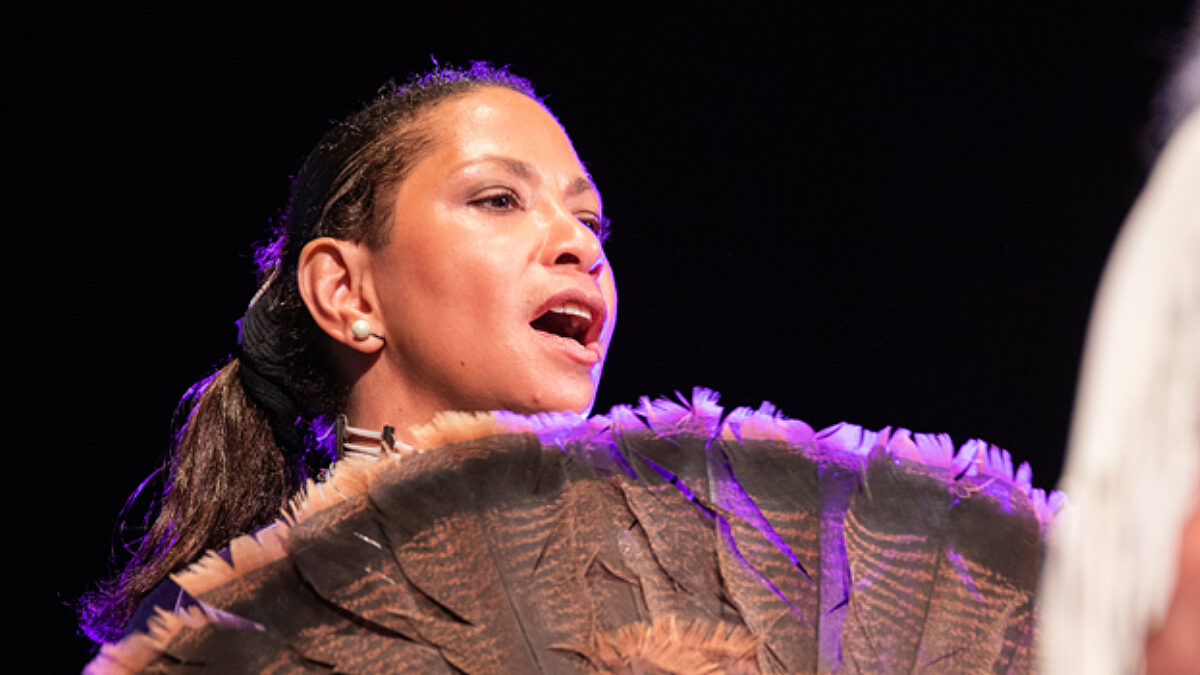
Native American pilgrimage designed to showcase unknown contributions, plight
By Jessica Brodie
It might be 2019, but many people in South Carolina still don’t understand what Native Americans have contributed to this state and this nation—or the turmoil they’ve been through.
“Today we still feel invisible,” said the Rev. Cheryl Toothe, Native American missioner for the South Carolina Conference of The United Methodist Church. “People don’t understand what Native Americans have done.”
Many still don’t understand there are a growing number of Native American United Methodists—and that being Native is a heritage separate and distinct from one’s Christian denomination. Just like a person can be Latino United Methodist and African-American United Methodist, there are countless Native American United Methodists, and they want to be counted, too.
“The problem is that not only do people not understand what Native Americans have done, but that they do not understand who we are and that we are still here. This is where the ‘invisible’ comes in. Most people, even some United Methodists, somehow think Native Americans are not Christians, that we do not believe in God,” said Mary Louise Worthy, who is on the Native American Committee.
That is why Toothe, along with other Native American United Methodists and the Advocacy Committee of Conference Connectional Ministries, are hosting a Native American Pilgrimage this spring in Rock Hill.
Set for May 17-18, the pilgrimage is a free event with space open to the first 100 who register. It starts that Friday evening at Friendship UMC, Rock Hill, then resumes at the church again Saturday morning. Then, attendees will travel by bus to the Catawba Cultural Center on the Catawba Indian Nation’s reservation, where they will enjoy their annual Yap Ye Iswa “Day of the Catawba.” There will be dancing, drumming, storytelling, crafts and Native foods available.
The pilgrimage is free, although attendees will be responsible for travel, food, and lodging; there are several hotel chains in the area.
Toothe said the pilgrimage is an effort to bring new awareness to the culture and efforts of Native Americans in South Carolina, as well as Native American United Methodists. It is intentionally being held on the Catawba Reservation because the Catawba is the only federally recognized tribe in this state; there are a number of other state-recognized tribes.
“At a time when our state and our nation are wrestling with our diversity, The United Methodist Church has the opportunity to be a light and example of what it means to embrace our multicultural diversity as a strength. This is often due to the fact that we have not taken the time to encounter and build relationships with indigenous people,” said the Rev. Bernie Mazyck, Advocacy chair. “The Native American Pilgrimage, scheduled in May, will be an excellent opportunity for United Methodists in South Carolina to understand and celebrate the identity of Native Americans often overlooked. This pilgrimage is vital to the future of our denomination, our state and our nation.”
Zan Tracy Pender, chair of the South Carolina Conference’s Native American Committee, said he, too, is pleased that the conference has continued its reconciliation efforts, which started with the Orangeburg pilgrimage.
“Once again, Methodists from diverse backgrounds will have an opportunity to sit and watch an educational documentary together and then discussed its aspects. Unless you live in a particular culture, there is not always the same level of understanding and appreciation of the impact historical events have had on each group. We are also pleased that tribal representation will be present,” Pender said. “Most importantly, it allows a time for someone to walk a mile in someone else's moccasins. It is not a time for guilt or blame, but simply to learn what someone experienced and how it has impacted their life from past to present. With that greater understanding and empathy, we are stronger.”
Toothe said the pilgrimage will be an encouraging, upbeat and interesting educational event. Attendees will hear from tribal leaders from around the state; see a short documentary “The Doctrine of Discovery: Unmasking the Domination Code”; learn about the pottery, baskets and other crafts and artwork created by South Carolina Native Americans; and view the film “The Dakota 38,” about the 38 Dakota elders hanged in 1862.
“The movie is fascinating, but to a Native it’s heartbreaking,” Toothe said, noting that most people don’t know President Abraham Lincoln gave permission for the 38 Dakota elders to be hanged to punish them for not doing the things they were told to do—essentially, she said, not assimilating.
All are welcome. Organizers said they hope Native American representatives, as well as anyone interested in learning more about Native culture in this state, will attend.
“For other people to learn about it makes it easier to understand the trauma we are dealing with now,” Toothe said, noting that while racial profiling and hate crimes toward African-American and other races are getting much media exposure, things happening to Native people are not. “We’re going through the same things; it’s just not publicized.
“It literally opens your eyes, and we want to open people’s eyes—to the way Natives have been treated and are still being treated.”
To register online, go to https://www.umcsc.org/nativeamericanpilgrimageregistration/. For more information, email Toothe at [email protected].